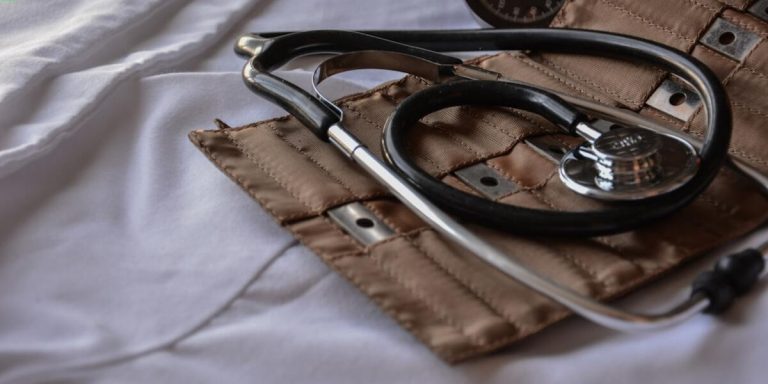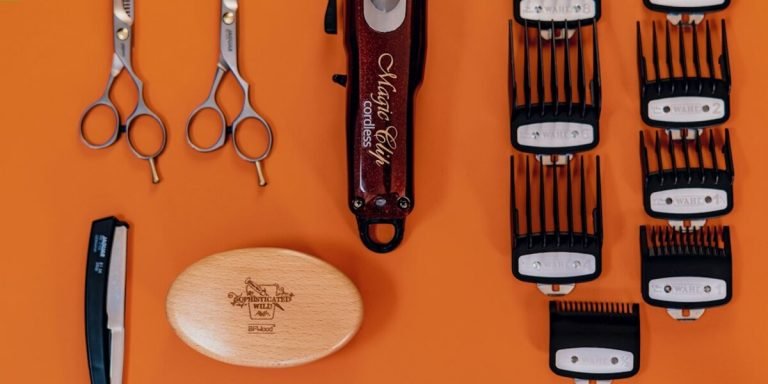Hair Loss and Menopause Treatment: A Comprehensive Guide for Women
As women navigate the natural changes brought on by menopause, they might notice an unexpected side effect: hair thinning or even loss. Understanding ‘hair loss and menopause treatment’ options is crucial during this transitional period for every woman. This becomes increasingly important as hormonal fluctuations add a daunting challenge to maintaining lustrous locks.
In this blog post, we explore key insights into the complex relationship between menopause and hair health. We also provide comprehensive guidance on available treatments. Armed with this knowledge, you can effectively combat any unwelcome changes in your hair associated with ‘the change.’
Did you know?
Although menopause doesn’t directly cause hair loss, the hormonal changes it triggers can lead to female pattern baldness – a condition affecting nearly 40% of women by age 70.
Understanding Hair Loss During Menopause
Menopause, a natural biological process marking the end of a woman’s reproductive years, often comes with many physiological changes. One such widespread yet less-discussed change is hair loss. Many women entering this new phase find themselves battling not just hormonal imbalances but also an intense degree of hair thinning and shedding.
Hair loss during menopause occurs due to a decrease in the production of estrogen and progesterone – two hormones essential for hair growth and retention. As these hormone levels dip significantly during menopause, it affects your scalp’s ability to replace lost strands promptly leading to thinning or bald patches over time.
Fortunately, understanding this correlation between menopause and hair loss opens up avenues for effective treatments aimed towards balancing these crucial hormones while promoting healthier hair growth simultaneously. This can be achieved through medical interventions like Hormone Replacement Therapy (HRT) or more holistic approaches encompassing nutritional diet modifications coupled with specific supplements that boost overall hair health.
Causes of Thinning Hair in Postmenopausal Women
In the postmenopausal phase, many women experience a significant reduction in hair volume causing thinning patches. This lesser-discussed side effect of menopause can be distressing and often leaves women clamoring for effective treatments. Understanding its causes is crucial to managing this condition effectively.
One primary cause is hormonal changes during menopause that contribute significantly to hair loss patterns among mature females. The lower levels of estrogen results in reduced scalp health leading to thinner strands with less pigmentation making visible areas on the head more prominent.
Hormonal Changes and Their Impact on Hair Health
During the menopause transition, many women experience significant hormonal changes that can affect their hair health. Most notably, these fluctuations can lead to a condition called androgenetic alopecia – more commonly known as female pattern hair loss.
As estrogen levels decline during menopause, testosterone production may increase relatively. This hormone is converted into Dihydrotestosterone (DHT) which shrinks hair follicles resulting in thinning of your locks or even baldness over time. Concurrently, progesterone another vital hormone for hair growth also decreases causing your strands to enter the resting phase prematurely leading to increased shedding and sparse regrowth.
Furthermore, stress-related hormones cortisol could elevate due to physical or emotional strain associated with this life-phase adding fuel to fire exacerbating your already dwindling mane’s state. Thyroid hormones too undergo upheavals sometimes triggering an autoimmune response attacking follicular cells thereby impeding healthy growth patterns.
Topical applications containing minoxidil boost circulation promoting better nutrient absorption by scalp cells enhancing thickness while finasteride blocks DHT synthesis protecting damage from its harmful effects successfully preventing further fallout.
Hormone Replacement Therapy balances erratic estrogen-progesterone ratios restoring normalcy thus encouraging regular renewing cycles where old shafts fall off replaced by new ones consistently maintaining voluminous looks you cherish always!
Contemporary Treatments for Menopausal Hair Loss
Hair loss during menopause commonly affects many women, but 2023 brings good news with various contemporary treatments. Hormone level fluctuations and dramatic changes during this life phase often trigger scalp hair thinning or noticeable bald spots. Health experts and scientific researchers have understood these challenges and developed effective solutions tailored for post-menopausal women’s unique needs.
One such solution gaining popularity involves using topically applied products fortified with ingredients that enhance hair growth. These include minoxidil-based formulas known to extend the active growth cycle of follicles, as well as natural alternatives featuring essential plant extracts rich in antioxidants and vitamins crucial for healthy strands’ proliferation.
Another modern approach combines lifestyle modifications with medicinal treatment under professional supervision – ensuring overall wellness while addressing hair loss issues at their roots literally! This typically includes dietary adjustments focusing on nutrient-rich foods promoting hormonal balance along with regular exercise routines helping control stress levels – both vital aspects associated when contemplating combating postmenopausal symptom management inclusively.
The Role of Minoxidil in Treating Female Pattern Baldness
For years, Minoxidil has been playing a crucial role in the treatment of female pattern baldness (FPB). This is especially true for women going through menopause, who often experience an increase in hair loss. They can thank hormonal changes, particularly falling estrogen levels and increased testosterone.
It’s here that Minoxidil emerges as effective support during this challenging period. Originally developed to treat high blood pressure, doctors soon noticed it also promoted unprecedented hair growth. Since then, it became popular worldwide due its effectiveness against MPB and FPB alike.
Minoxidil works by improving the scalp’s ability to facilitate healthy follicle function. It reactivates shrunken hair follicles thus allowing them to return back to their regular size over time; once they are their normal size again these follicles can produce longer threads of hair than before!
Advances in Low-Level Laser Therapy for Scalp Rejuvenation
Low-Level Laser Therapy (LLLT) has made significant strides in the field of hair loss treatments, notably for individuals experiencing menopausal hair loss. This non-invasive therapy utilizes a specific wavelength of light to stimulate follicle growth on your scalp which can help replenish thinning or lost hair.
One particular advance is in its delivery systems. Early versions required bulky overhead setup but recent models are compact and portable, boasting hands-free features for user convenience. Some cutting edge devices now come as wearable caps that allow treatment even during routine activities.
Another innovation is precision technology whereby lasers deliver optimal energy directly to affected areas without harming healthy tissues nearby; maximizing results while minimizing side effects such as thermal burns or unnecessary irradiation.
The versatility of LLLT makes it an appealing choice in tackling hormone-induced baldness related with menopause too. As hormones fluctuate during this stage, women often experience distressing episodes of shedding and thinning – conditions that respond positively under consistent laser therapy protocols.
Lifestyle Adjustments to Manage Menopause-Related Hair Loss
Navigating through menopause can bring along some unwelcome changes in a woman’s life, including hair loss. While this natural transition phase is inevitable, the accompanying hair thinning doesn’t have to be permanent or cause undue stress. Innovations in today’s world offer numerous treatments that focus on addressing such issues effectively.
One of the first steps towards managing menopause-related hair loss includes making certain lifestyle adjustments. Consuming a balanced diet rich in vitamins and minerals like iron, vitamin D and B-vitamins can significantly promote good health for your scalp and follicles. Remember to stay hydrated as well; dehydration often leads to dry scalp conditions which might accelerate hair shedding during menopause.
Stress, one of the common triggers of premature baldness among women undergoing hormonal shifts due to menopause, should also not be overlooked when adjusting lifestyles for better mane management at this stage. Embrace relaxation techniques such as yoga or meditation keep cortisol levels under control thus promoting healthier locks growth against all odds thrown by nature itself.
Nutritional Strategies to Promote Healthy Hair Growth
Incorporating nutritional strategies into your everyday routine can significantly influence the health of your hair, especially during menopause when hormonal fluctuations may lead to unwanted hair loss. A nutritious diet is one of the most effective methods for promoting strong and healthy hair growth.
Fatten up with Healthy Fats: Omega-3 fatty acids have shown impressive results in boosting hair health. These fats are found abundantly in fish like salmon and mackerel, flaxseeds, walnuts, and chia seeds. Incorporate these foods at least twice a week for noticeable improvements.
Protein Power-up: Hair is primarily made from protein named keratin; hence it goes without saying that adequate intake of proteins will support its growth. Lean meats such as chicken or turkey breasts along with eggs are excellent sources of high-quality protein. Vegetarians can opt for tofu or legumes instead.
Vitamin Boosts: Vitamin deficiencies often accelerate thinning and balding issues related to menopausal changes – some key vitamins include Vitamins B12 & D which help maintain scalp health while ensuring robust follicle functioning simultaneously aiding metabolism processes that promote new cell (including those responsible for hair) development.
Iron Up Your Diet: Iron deficiency leads to anemia – a condition notorious among women undergoing menopause causing drastic impacts on overall well-being including noticeable damages on their mane’s nobility! Fight this by adding iron-rich foods such as spinach or other leafy greens besides seafood variants too!
Stress Reduction Techniques Beneficial for Hormonal Balance
Meditation has been hailed around the world for its incredible benefits in reducing stress levels. It helps manage anxiety effectively by training your mind to focus and redirecting thoughts. Even occasional meditation sessions could provide noticeable reductions in psychological markers of stress.
Another technique that deserves spotlight is progressive muscle relaxation (PMR), where you tense up various muscle groups before letting go off gradually – leaving them relaxed eventually. Practiced over time, PMR not only lessens overall bodily tension but also cultivates concentration boosting hormones thereby aiding better sleep quality- all factors instrumental for managing hair health under stressful scenarios such as menopause.
Exercise too plays a critical role here with its undeniable effect on ameliorating mental well-being along with promoting physical wellness aspects like heart health or weight management – making it an indispensable tool within your arsenal towards achieving better hormone-balance-led ‘hair loss & menopause treatments’.
Conclusion
In the realm of hair loss and menopause treatment, remember that knowledge is power. Every woman experiences her journey differently; thus it’s crucial to understand your body, recognize changes, and make informed decisions on how best to approach this new chapter in life. Hair loss doesn’t have to be a foregone conclusion with menopause—with the right insights and treatments.
So ladies, don’t just stop here! Dive deeper into our website where ample information awaits you about various hair loss treatments. Your strength resides not only in accepting these natural transformations but also in finding innovative ways—like exploring cutting-edge solutions available today—to enhance your health and beauty during menopause.







